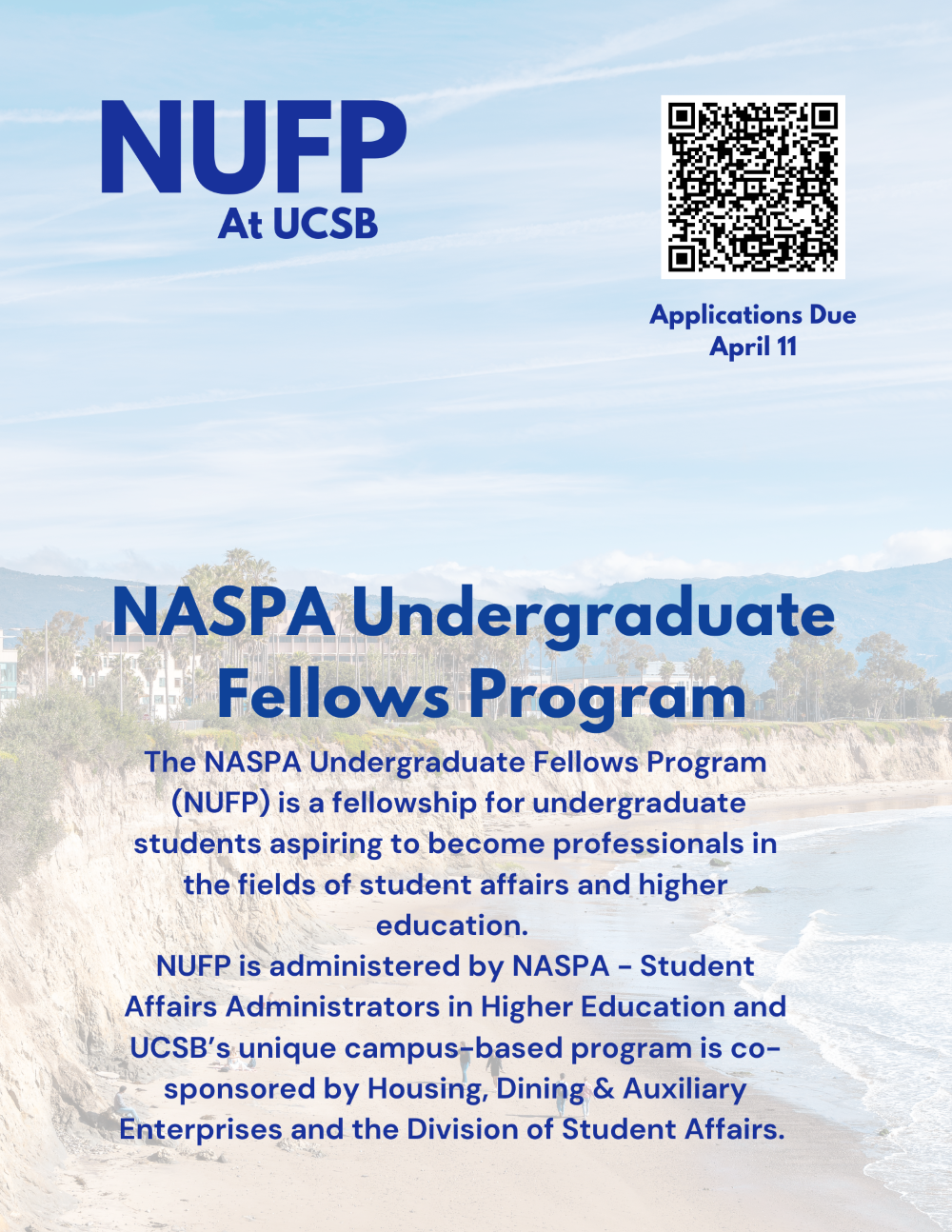The mission of the NASPA Undergraduate Fellows Program is to increase the number of historically disenfranchised and underrepresented professionals in student affairs and/or higher education, including but not limited to those of racial and ethnic-minority background; those having a disability; and those identifying as LGBTQ.
History
The NASPA Minority Undergraduate Fellows Program (NUFP) was initiated in 1989-90 under then NASPA President Doug Woodard. Concerned by the lack of persons of ethnic-minority in the student affairs profession, President Woodard sought to identify ways for members of those communities to become aware of and involved in the field and to continue in higher education. He asked Constance Rockingham, an at-large member of the NASPA Board of Directors, to develop a program that would identify and encourage undergraduate students of ethnic-minorities to continue in higher education, and even more than that, encourage them to consider student affairs as a profession. Frederick Preston, a former at-large member of the NASPA Board, had given consideration to the same issues some years before. With the benefit of Preston's experience and Wooodard's encouragement, Constance Rockingham developed NUFP.
Continue Reading here.

About
Co-sponsored by Housing, Dining, and Auxiliary Enterprises (HDAE) and the Division of Student Affairs
The NASPA Undergraduate Fellows program is a semi-structured mentoring program for undergraduate students wishing to explore and better understand the field of student affairs and/or higher education. Students and mentors apply as a pair, and if selected are provided the foundation to establish a semi-structured mentoring relationship at their institution. Students, once selected, are known as Fellows, and are also given the opportunity to attend a national conference, participate in paid internships, and participate in the Summer Leadership Institute.
NUFP Learning Outcomes
NUFP activities and components are structured around a set of critical learning outcomes. These learning outcomes are reflected in the curriculum, training, and Institutes for the program, and also provide the basis for program assessment.
To achieve the NUFP mission, NUFP Fellows will develop:
- Writing, research, and presentation skills
- Ethical decision-making skills
- Cultural competency skills
- Professional networking skills
- Their ability to identify and develop personal, academic, and career goals
- An understanding of NASPA's organization and structure
- An awareness and understanding of engaged citizenship and service
- An understanding about multiple relationships to power and privilege
- An understanding of the history, mission, and purpose of Student Affairs and the various institutional types and structures within higher education;
2025 - 2026 Fellow Application due April 11

The 2025 - 2026 application is open!
SELECTION AND APPLICATION PROCESS FOR FELLOWS
Selection of UCSB Fellow-Mentor Teams is a two-stage process with two separate deadlines.
Phase 1: The UCSB campus-based process requires an application packet: this completed form, an introduction video, one letter of recommendation, current resume, and unofficial transcript. To apply, submit a complete application by Friday, April 11. Applicants will be notified of acceptance around early May.
Phase 2: Selected Fellows will be offered a spot in the UCSB NUFP program and assigned a Mentor. Under the guidance of the program coordinator, each Fellow/Mentor pair must then apply for the NASPA NUFP program by June 30, 2025.